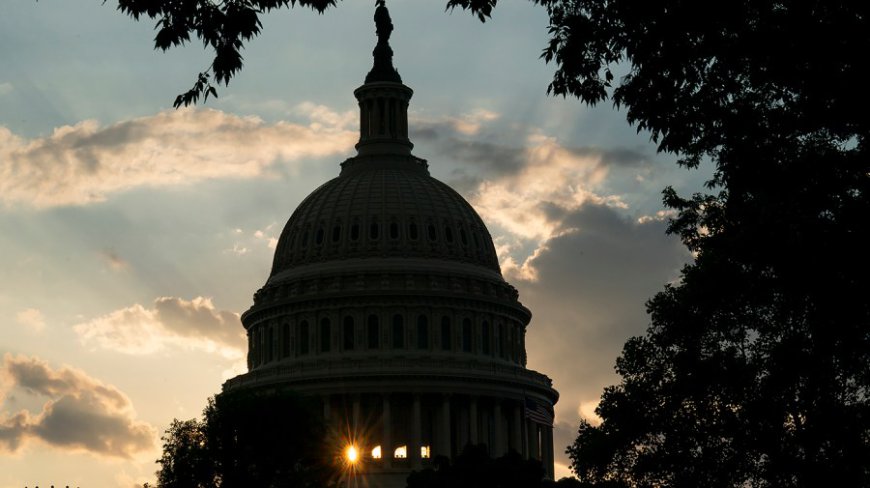The rescission package is a chance to get serious about cutting spending
I suspect Tom Coburn would remind his colleagues that the “E” in PEPFAR stands for “emergency.”

Senate passage of the $9 billion rescissions package compiled by the Trump administration marks the first reduction in federal spending since the Tea Party era.
Over a decade ago, fiscal conservatives led by my former boss, the late Sen. Tom Coburn (R-Okla.), forced the first year-to-year reduction ($150 billion) in federal spending since the end of the Korean War. Between fiscal years 2012 and 2013, Coburn and his colleagues added on an earmark moratorium that saved $140 billion over 10 years and an additional $725 billion in savings from consolidating duplicative programs through Government Accountability Office recommendations. That brought the tally to over $1 trillion.
The Trump administration was right to aspire to eclipse that total and cut spending by more than $2 trillion, but it still has a long way to go.
In fact, if the clock were to stop today, the Trump administration and Republican Party would have to defend expanding the administrative state by $75 billion. The recently passed budget reconciliation bill directs $45 billion to the Immigration and Customs Enforcement agency’s detention budget and nearly $30 billion to ICE’s enforcement and deportation operations over the next four years. The bill directs an additional $46.5 billion to border security infrastructure, which is more of a fixed cost than an agency expansion.
Congress and the administration do deserve credit and praise for slowing the growth rate of Medicaid by $1 trillion over 10 years. But that win does not reverse the progressive left’s quest to expand the administrative state.
Supporters of spending more on immigration enforcement have a strong case that spending $75 billion to grow a federal agency will more than pay for itself over time. According to the Federation for American Immigration Reform, illegal immigration and “open borders” costs American taxpayers $150.7 billion annually. Most of these costs (about $70 billion) are imposed on state and local communities through K-12 education expenses, while $22 billion goes to medical expenses.
The Manhattan Institute estimated that the surge of 8.7 million illegal immigrants would cost $1.15 trillion over the lifetime of the new illegal immigrants. They conclude, “Mass deportations would significantly reduce the national debt over the long run, but a policy of selective legalization, coupled with mass deportations, would be even more fiscally beneficial, reducing the debt by about $1.9 trillion.”
The plan in the “big, beautiful” bill is both well-intentioned and well-conceived, but no Congress can guarantee a future Congress or administration will ensure the plan is well executed. If history is any guide, these funds could become a permanent expansion of a bureaucracy rather than a prudent surge designed to address an emergency.
The uncertainty about whether a plan could be spectacularly successful or wasteful underscores the urgent need for Congress to take serious steps to reduce our unsustainable debt and deficits. The Senate rescissions package only saves $9 billion, leaving Trump’s second-term administrative state expansion at around $65 billion.
Even that modest package faced serious headwinds in the Senate. Some Republican senators balked at proposed cuts to the Corporation for Public Broadcasting. Others are expressed concerns about cuts to life-saving humanitarian assistance.
In moments like this, I am often asked, “What would Coburn do?” I suspect his colleagues who served with him, who will determine the fate of this package in the House, were asking the same question.
Coburn was an unapologetic supporter of the President’s Emergency Plan for AIDS Relief or PEPFAR. He said the program is “not an earmark; it is a policy that’s proven, that’s worked.” But Coburn was also not afraid of insisting that funds go to those who had contracted HIV instead of those wanting to help people with HIV.
In 2008, he was vilified for placing a hold on PEPFAR reauthorization until he could be assured that 55 percent of PEPFAR funds be spent on treatment rather than overhead. But that distinction was critical.
I suspect Coburn would remind his colleagues that the “E” in PEPFAR stands for “emergency.” The program was never meant to be an open-ended entitlement to be funded in perpetuity. Today, he would be working with his colleagues to continue life-saving humanitarian assistance that advances American national interests, while eliminating spending that advances faddish ideological agendas and bloated bureaucracy. All sides should agree that our foreign aid process, which has funded fraud and terrorism, needs a dramatical overhaul.
The administration has said that if Congress passes this rescissions package it will send more. This a chance for Congress to assure taxpayers that instead of expanding federal agencies, they want to expand Americans’ personal agency and their ability to pursue happiness on their terms, with their own resources and talents.
Some progress toward that goal would be better than no progress.
John Hart is CEO of Open the Books, and former communications director for the late Sen. Tom Coburn (R-Okla.).
What's Your Reaction?
























